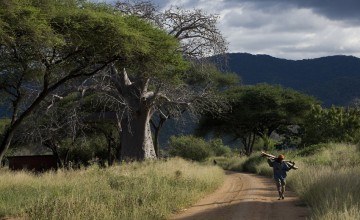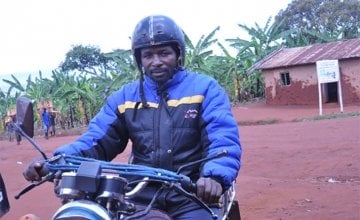
Read our 2024 annual report

Knowledge Hub
Tanzania: a sustainable legacy

In 2016, after 37 years in Tanzania, Concern Worldwide will conclude its work in the East African nation. Here we explore the legacy of improved food security and nutrition we will leave behind.
Our history in Tanzania
In 1978 the first president of Tanzania, Julius Nyerere, invited Concern to implement community development projects in one of the country’s central regions, Iringa. This was a landmark for Concern, as the first move away from emergency humanitarian work into longer-term development efforts.
In our time in the country, our work has expanded to providing education to local organisations and communities in water security, enterprise and health. Our ambition has been to empower communities to spearhead their own development out of extreme poverty, and over time we have seen improvements in children’s health, livelihoods and food security.
Now, the country is seeing strong economic growth – and while Tanzania still suffers from high levels of poverty and inequality, it is quickly making gains in the Human Development Index and becoming increasingly resilient.
One of the ways Concern promotes sustainable growth is through agricultural training programmes, which help to safeguard small communities from hunger while creating opportunities for economic stability on a local scale.
Meet Bernard

Bernard Kamuhanda is a motorbike taxi driver from Nterwenge village, a remote community in western Tanzania. Driven by a passion to contribute to his community, he took part in a Concern training programme that helped him to learn new techniques in crop production, animal rearing and nutrition. Alongside his day-time work, he spends his time sharing his new expertise with the most vulnerable people in his community. He tells us:
I volunteer my time trying to help my community; if we work together we will all do better.
Growing together
When we meet Bernard, he leads us on his bike to visit the Mbogamboga Mkatoke Vegetable Garden Group: four women and nine men he’s coaching in garden establishment and management, passing down the knowledge he has learned from his own training by Concern.
As we arrive, the group are weeding their collective garden, which is abundant with rows and rows of lush greenery – a mix of cabbages, potatoes and spinach. The group sells their extra produce, like tomatoes, dividing some of the money between themselves, and the rest towards a group savings fund from which they can each borrow equally.
Projects like Mbogamboga Mkatoke help to achieve food and financial security for those involved. But the surrounding community also benefits by adopting skills on best garden practices – and the most vulnerable living nearby are given weekly donations of vegetables that the groups are harvesting.
The power of volunteering
For Bernard volunteering to help his community is a passion. He tells us that he feels empowered by the trust and respect his own community members have shown in him.
His work, and the work of people like him, has had a remarkable impact on helping to reduce hunger and poor nutrition. By the completion of the project communities will see crop yields increase by up to 600%. This increase will reduce hunger between harvests, and helps to promote a richer diet of animal protein, vegetables, staple grains and fruits.
Legacy
Food security is just one of the improvements that we have seen through our work in Tanzania. We continue to work in programmes around gender equality and access to clean water with the ambition of leaving the areas we work in as safer, more equitable and sustainable environments for those who live and work there.


